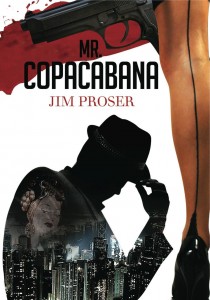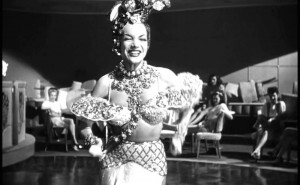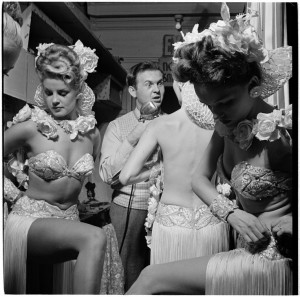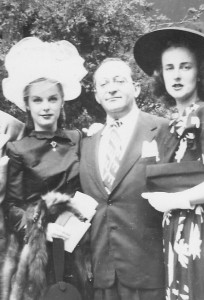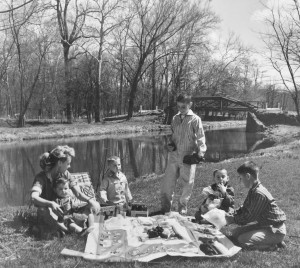 |
| Assorted Fruit Tartlets. |
The reason they’re all heading to this scenic, rural section of Upper Bucks County is simple: NelliRae’s offers local, fresh vegetarian food produced on-premise in the relaxing ambience of an uncluttered country dining room.
On the menu is a creative array of vegetarian and vegan dishes, fresh-baked treats, juices and smoothies.
“Cooking is our passion” is the slogan of owners Rachel and Kris, who opened the restaurant in 2013. “We both have done the nine-to-five thing,” says Kris. “But we’ve been in the food industry since we were teenagers, and it’s the thing we know how to do best.”
Everything from the kitchen is made from scratch, and prepared with ingredients from all over Bucks County. “The only thing we don’t make here is the bread from Crossroads Bakery in Doylestown,” adds Rachel.
Moving quietly about in the quaint, soothing atmosphere are friendly and attentive staff members. The menu is relatively modest in size, featuring rotating desserts and specials.
Among the smoothies are Mango Madness, made with mango juice and bananas, and Nutty Blue, with blueberries, bananas, and almond milk. Popular fresh-pressed juices include the Carrot, Apple and Ginger mixture, and Green Lemonade, made from celery, parsley, apple, lemon, and cucumber. The combinations taste balanced, and the portions are generous.
The main menu at NelliRae’s Kitchen is built around breakfast and lunch, both of which are served until late afternoon. The excellent coffee comes from the well-regarded Small World Roasters of Princeton, and Wi-Fi is accessible. Prices are affordable, and outdoor seating is available.
Of note are the Breakfast Burrito, with eggs, habanero wrap, cheddar cheese, black beans, brown rice, and salsa, and the French Toast, made with gluten-free challah bread, and served with real maple syrup.
Another favorite is the Frittata of the Day, served on a bed of mixed greens. Recently featured were the Spinach, Onion and Cheddar and Three Cheese frittatas.
The Falldorf Salad has also been well-received, with its mixed greens, apples, pears, walnuts, goat cheese, and roasted pumpkin seed, topped with an orange-cranberry balsamic dressing. The Sushi Salad may be the most popular of the bunch, and features brown rice, grated zucchini, grated carrots, red peppers, mixed greens, nori seaweed, sesame seeds, avocado and ginger dressing, with a side of soy sauce.
Standouts among the changing selection of soups have included Creamy Carrot-Coconut, Potato Leek, Pumpkin, and Moroccan Vegetable Stew.
Quesadillas are another ever-changing specialty at NelliRae’s Kitchen, and are served with salsa and sour cream. A recent “Quesadilla del Dia” used arugula, apples, and feta cheese.
 |
| Sweet Potato Burger. |
The Roasted Vegetable Wrap is another delectable choice, with assorted seasonal vegetables and smoked Gouda cheese. A gluten-free wrap is also available. The Gluten-Free Mexican Lasagna was another well-liked special for those who avoid gluten proteins, which have low nutritional value, and can cause health problems for some.
If one has room, the desserts are not to be missed. This is where so many vegetarians and vegans feel like they’ve gotten the short end of the stick. But the Blondie Brownies with Peanut Butter Frosting, Hugh’s Lemon Cake, and the Raw Chocolate Pudding, which is decadent despite containing no added sugar or dairy, change that equation, making delicious, healthy desserts a viable option.
Maybe that’s another reason why folks seem to be coming from to NelliRae’s Kitchen from all over Bucks County and beyond.
“We get so many different people visiting, from folks in business suits to painters and musicians,” said Kris of the café’s customer base. “There really isn’t one singular demographic, and we love that.”
It certainly has been an incredible first three years for NelliRae’s Cafe, and a relatively short time to have earned such an apparently devoted following.
“We absolutely love it here — there’s just something amazing and magical about the natural beauty of the area,” observed Kris.
And what does the future hold for the NelliRae’s?
“We’re not locked in to any business model or goal, but prefer to let the business take shape organically,” agreed Kris and Rachel. “We love where things are headed.”
NelliRae’s Café is located at 8826 Easton Road in Revere; (610) 847-2223. It’s open weekdays except Tuesday from 7 a.m. until 4:30 p.m., Saturday from 8 a.m. to 4:30 p.m., and Sunday 9 a.m. to 3 p.m.

